





Pulmonologist
The pulmonologist – the therapist who is engaged in treatment of diseases of respiratory system. The pulmonologist carries out treatment of pneumonia, bronchitis, emphysema, bronchial asthma. Competence of the pulmonologist includes studying of diseases of a respiratory organs, namely, lungs, a trachea, a pleura, bronchial tubes.
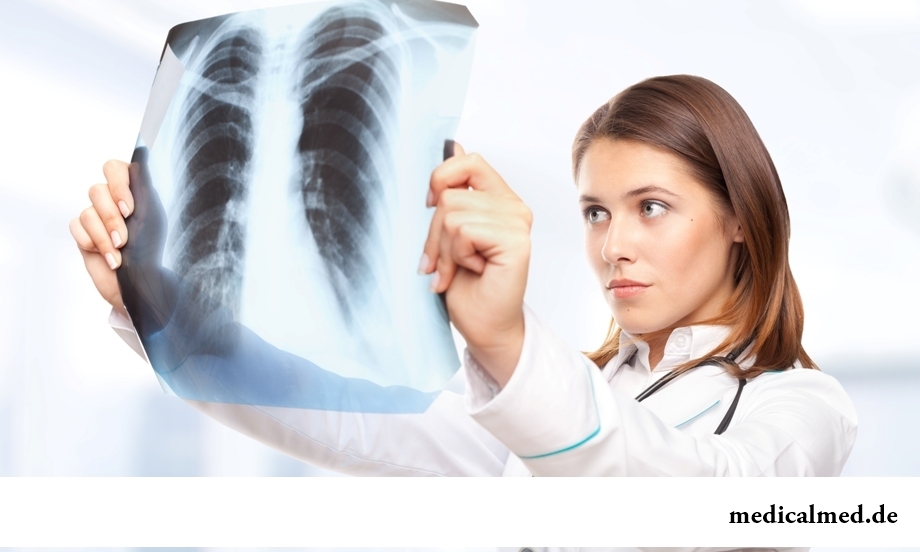
The children's pulmonologist is engaged in diagnosis and treatment of diseases of a respiratory organs at children. The main factor in work of the children's pulmonologist is objective assessment of the state of health of the little patient as children often cannot precisely describe the symptoms. Therefore the pulmonologist, according to reviews, has to have wide experience of work and be able to estimate the state of health of the child on indirect signs, and, if necessary, to appoint the sparing inspection methods.
What does the pulmonologist treat?
The pulmonologist is engaged in treatment of all diseases connected with respiratory system. Such catarrhal diseases as pharyngitis, rhinitis, bronchitis, pneumonia, a bronchiolitis, laryngitis, tonsillitis, a nasopharyngitis, and also bronchial asthma, pleurisy, a fibroziruyushchy alveolitis, a bronchoectatic disease, malignant pleurisy, bronchitis of the smoker, a chronic obstructive pulmonary disease, chronic respiratory insufficiency, emphysema of lungs, a chronic or acute bronchitis, long pneumonia, fevers of the obscure etiology concern to them.
The pulmonologist is engaged in the following bodies: lungs, bronchial tubes.
What the pulmonologist children's treats?
Treat diseases in which the children's pulmonologist is engaged: chronic bronchitis, bronchial asthma, pneumonia and chronic cough.
Treat bodies in which the children's pulmonologist is engaged: tracheas, lungs, throat, throat, paranasal sinuses, bronchial tubes.
When it is necessary to register in reception to the pulmonologist?
At manifestation of symptoms of a disease of a respiratory organs the patient needs to descend on reception to the pulmonologist. But how to distinguish these symptoms if they are so similar to symptoms of many other diseases? The most common symptoms are:
- Cough. The special center of a brain is responsible for developing of cough (kashlevy) which at irritation of respiratory tracts is activated. Cough, inherently, is defense reaction of an organism on activators (foreign debris, dust, bronchial slime). Cough is dangerous that it, according to pulmonologists, can "leave in" an organism, that is, extend to lungs that is fraught with serious complications. Therefore at emergence of cough it is better not to shelve visit to the pulmonologist.
- Cough of the smoker. Such cough arises preferential in the mornings and turns into expectoration of a phlegm. This symptom demonstrates development of chronic bronchitis, and over time can turn into respiratory insufficiency or emphysema of lungs.
- Asthma at rest. At a pulmonary disease an asthma at rest demonstrates development of emphysema of lungs. If similar short wind develops suddenly, then it can testify to extensive pneumonia or heavy disturbance of cordial activity.
- Asthma with difficulty of an exhalation. This symptom can demonstrate existence of bronchial asthma or obstructive bronchitis. At emergence of a similar asthma it is necessary to register immediately in reception to the pulmonologist.
In addition to above-mentioned symptoms it is also worth paying attention to symptoms of bronchial asthma: an itch of eyes, sneezing, vasomotor reactions from mucous a nose, pristupoobrazny cough, a headache, feeling of shortage of air, squeezing in a breast, an expiratory asthma. At emergence of these symptoms consultation of the pulmonologist is necessary.
When it is necessary to address the children's pulmonologist?
Parents need to watch a state and behavior of the children carefully. As we know, the earlier to reveal a disease, the more successfully and quicker there will take place its treatment. According to pulmonologists, parents have to pay attention to the following signs: intoxication, emergence of a phlegm, cough, breath disturbance, asthma. All these symptoms, their degree of manifestation and character, play an important role directed by the correct diagnosis and the choice of the corresponding treatment.
What analyses the pulmonologist will demand?
- Skin tests;
- Research of allocations from a nasal cavity;
- Provocative tests;
- General blood test;
- Determination of level of immunoglobulin E in blood serum.
In what types of diagnosis the pulmonologist is engaged?
For specification of the diagnosis the pulmonologist can direct the patient to passing of the following types of diagnoses:
- Computer tomography;
- Echocardiography;
- X-ray diagnosis, research of function of external respiration.
Councils of the pulmonologist
How to define pneumonia:
- It is necessary to register in reception to the pulmonologist and to conduct the corresponding medical research. In certain cases blood test and a X-ray analysis of a thorax can be required. Usually, for diagnosis of these analyses it is enough.
- In case of finding of any complications additional analyses can be required. The pulmonologist can also check slime from lungs to reveal an infestant. Besides, this analysis will help the pulmonologist to decide on an optimum way of treatment.
During sneezing our organism completely stops working. Even heart stops.
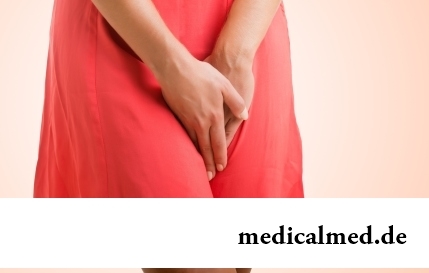
Statistically cystitis 25-30% of women up to 40 years have. With age this indicator raises, besides many do not get in to become...
Section: Articles about health
Life of the modern child is extremely active and difficult. Information strain which is experienced by the school student and did not dream pupils of last times. Careful parents, wishing well to the children, will organize a set of additional classes in circles, sports...
Section: Articles about health
Modern footwear is extremely various. It stopped being only protection for legs long ago. Today shoes, boots, barefoot persons choose not so much proceeding from their convenience and functionality how many being guided by outward, brand and an opportunity to add with them a stylish dress. At the same time, buying footwear, think of its safety a little. Meanwhile, many popular models can do essential harm to health....
Section: Articles about health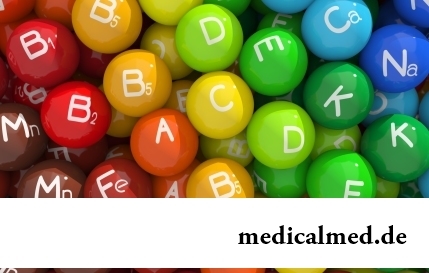
Vitamin complexes belong to the most popular drugs, probably, in our country there is no person who was not hearing about a floor...
Section: Articles about health
At this plant there are a lot of names: tuberiferous sunflower, Jerusalem artichoke, solar root, earth pear. Contrary to popular belief, it is not an exotic plant at all. The wild girasol grows in a midland of Russia practically everywhere: at the edges of roads...
Section: Articles about health
All got used long ago that, having addressed the plastic surgeon, it is possible to modify natural parameters of a figure or to minimize the damages put to appearance with ruthless time. Many people (preferential women) worldwide annually decide on operations such. However there are also much more exotic interventions which are carried out seldom so far and cost expensive very much. We bring the story about the most unusual of them to your attention....
Section: Articles about health
Iodine - one of thirty most important microelements in our organism. The main role of iodine consists in synthesis thyroid гормо...
Section: Articles about health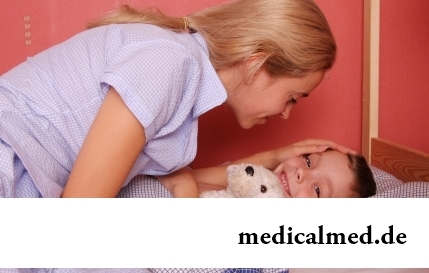
Neurosis is called pathology of a nervous system at which deviations in functioning of the highest nervous processes are observed. Most often - owing to yet not strengthened mentality - children are subject to neurosises. Premises to emergence of such disturbances can become нез...
Section: Articles about health
There comes the season of issues. Many Russians already dream of outdoor recreation, trips, beautiful seaside beaches. At this time there is no wish to think of problems with health and other unpleasant things, however there are subjects which require attention. In the summer repeatedly the risk increases to ache with some very dangerous illnesses, we also will talk about them today....
Section: Articles about health
Cystitis, or inflammation of a mucous membrane of a bladder, this very widespread disease, which, owing to some persons...
Section: Articles about health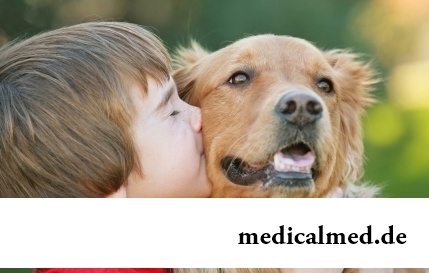
Is told about advantage of domestic animals for development of the child much. But many parents nevertheless do not hurry to bring pets as are afraid that they can do harm to health of children. What troubles can really trap kids and how to make with...
Section: Articles about health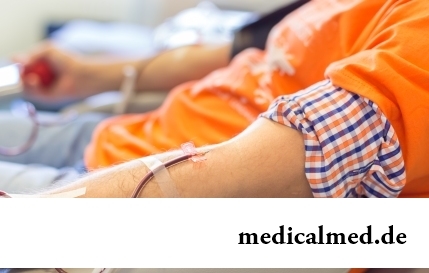
Transfusion of donor blood has almost century history. In spite of the fact that this procedure is quite usual for many people, process of blood donation is still surrounded with numerous myths. Today we aimed to discredit the most widespread of them....
Section: Articles about health
The cosmetics intended for improvement of a condition of skin, nails and hair are used by each woman. Expenses on регуля...
Section: Articles about health
The sudden heat on all body which is followed by perspiration and a cardiopalmus – the phenomenon familiar to many people. Most often such states called by "inflows" result from nervous or physical overworks and disappear right after rest. Odn...
Section: Articles about health
Food with the increased content of sugar is attractive to most of people - it is scientifically confirmed fact. Business here not in intemperance or dissoluteness: the sweet food is associated since childhood with feeling of rest and safety which tests the kid when it absorbs maternal milk. Besides, getting into a human body, sugar strengthens production of "happiness hormones" which all of us so need. And still life of sweet teeth seldom happens cloudless: their too big loss...
Section: Articles about health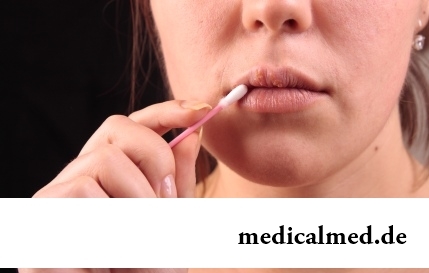
Herpes simplex of the first type (the infectious disease which is shown periodic bubble rashes on is called...
Section: Articles about health
The stroke is one of the most widespread diseases of the person, annually in the world about 6 million cases of this pathology are registered. According to medical statistics, strokes occur almost three times more often than myocardial infarctions. Disease otno...
Section: Articles about health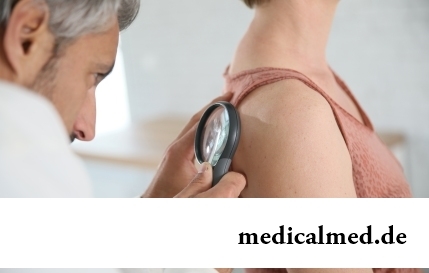
Scientists have no unambiguous opinion on a proximate cause of emergence of a carcinoma cutaneum today. Only the factors promoting development of this illness are precisely established. Treat them: long impact on skin of ultraviolet rays, radiation exposure, thermal injuries, injuries of skin by aggressive chemicals (pitches, acids, alkalis, etc.), genetic predisposition (existence of malignant new growths of skin in the family anamnesis), at...
Section: Articles about health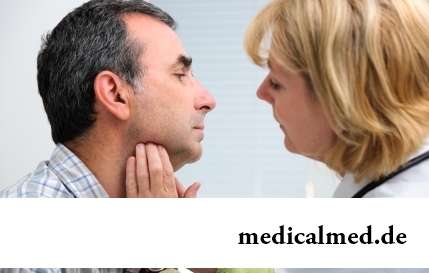
The endocrine system carries out in a human body extremely important role, practically all processes of life activity регулируютс...
Section: Articles about health
Nightmares belong to the most unpleasant frustration. Statistically, they happen at 4% of adults, and almost at 70% of children and teenagers. During a nightmare of people dreams himself in extremely difficult, life-threatening situation. It wakens suddenly, in...
Section: Articles about health
Any of us is not insured from a heavy illness of the loved one. Happens and so that someone from family members becomes the bed patient, and remains in such state for a long time. It extremely suppresses both the most injured, and all its house which life considerably changes....
Section: Articles about health
Popular joke that there are no healthy people, and is nedoobsledovanny, most of us considers an honest truth, and put that...
Section: Articles about health
The drugs stopping or oppressing life activity of pathogenic microorganisms are widely applied in clinical practice from 40th years of the last century. Originally antibiotics were called only substances natural (animal, vegetable or микробног...
Section: Articles about health
No, probably, the person who would not have cold. Cold, cough, a headache – these symptoms are known to everyone. The peak of catarrhal diseases is the share of fall. SARS already came to schools and kindergartens, flu slowly makes the way to the cities, in a word, winter close!...
Section: Articles about health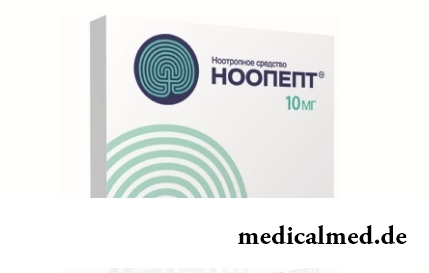
Many of us, probably, noticed more than once that from intellectual loadings at some point the brain as though "overheats" also "assimilation"...
Section: Articles about health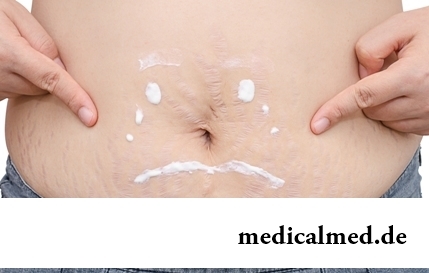
Striya (extension) are the defects of skin having an appearance of direct or wavy strips from 1 to 10 cm long and 1-5 mm wide. In most cases at women of a striya are located on a stomach, hips, a breast or buttocks. At athletes they can appear on shoulders and внутренн...
Section: Articles about health
Among a set of the perfumery and cosmetic goods which are released today the special group is made by the means containing antibacterial components. Such types of gels, shampoos, soaps, creams, lotions and other products are positioned by manufacturers as a panacea from all diseases caused by pathogenic microorganisms. The unlimited and uncontrolled use of similar means becomes result of trustfulness of the buyers hypnotized by persuasive advertizing sometimes. Many spetsial...
Section: Articles about health
